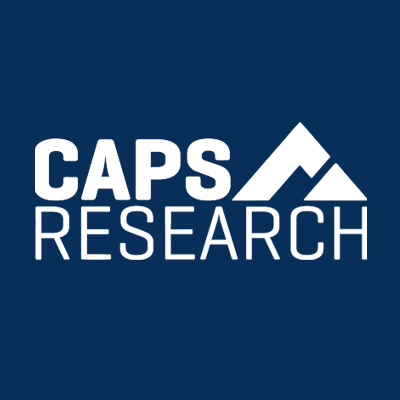Neglecting ‘Everyone’s Business’ Is Unsustainable

Sustainability issues present complex challenges for supply management organizations that must address such evolving environmental and social topics as supplier diversity, conflict minerals and fair labor practices. Supply chain leaders are acutely aware that sustainability is growing in importance as customers, consumers and shareholders take note of how companies are handling this important area.
Whether a company is “just dipping its toe in the water” or is deep into measuring and evaluating sustainability practices throughout its supply chain, it’s evident that a solid sustainability program is a smart and essential business practice. A recent Critical Issue Exchange (CIE) by CAPS Research, the organization jointly sponsored by Institute for Supply Management® (ISM®) and Arizona State University (ASU), delved into the topic of sustainability, discussing supply management’s role, mapping ways to drive sustainability practices into the supply chain, and evaluating programs to measure and report progress in sustainability. Three companies also detailed their sustainability journeys as well as the policies and programs used to address environmental and social issues throughout their supply chains.
Working with Suppliers and Partners
CIE participants agreed that supply management plays a key role in driving, managing and measuring sustainability because of the function’s close link to the supply base. But as sustainability grows in importance, it’s no longer the siloed issue it was a few years ago. Responsibility for a sustainable supply chain has become “everyone’s business,” so it’s an endeavor that supply chain executives are working on closely with business partners and suppliers.
Key focus areas identified by CIE participants include:
Driving sustainability into the supply chain. Sustainability goals within a company can be met only with the help of a supply base committed to strong environmental and social programs and policies. Participants talked about ways to expand the impact of sustainability by working closely with strategic suppliers on their sustainability goals and taking the next step of measuring success. An important first step is gathering information about what suppliers are doing in various areas of sustainability by using supplier assessments and audits.
A 2018 CAPS Research benchmarking survey found that topics covered in supplier assessments still focus most heavily on quality and financial health, but such issues as sustainability and social responsibility are growing in importance. A 2019 follow-up survey, Transparency and Collecting Supply Chain Data, identified the most common sustainability data gathered from supply bases, such as country of origin, supplier code of conduct, conflict mineral reporting and disclosures involving child labor and anti-human trafficking policies.
Supplier diversity is an example of how supply management organizations can work with the supply base to advance sustainability goals. Procurement professionals noted that supplier diversity successes in recent years came about by clearly defining a strategy, making it a company-wide focus and using technology tools to measure and evaluate progress.
Relying on the experts. Noting that there’s “no need to reinvent the wheel,” supply management leaders suggested partnering with universities and organizations that conduct audits, educate consumers and design supplier assessments on an industry-wide basis as they build and grow their sustainability programs and policies. Academic researchers reported that they are studying such areas as (1) business modeling, (2) sustainable strategies and measurement techniques and (3) best practices in environmental and social responsibility.
A supply management leader from one CAPS Research member company detailed how the organization is working with the Electric Utility Industry Sustainable Supply Chain Alliance (EUISSCA) in building its sustainability program. EUISSCA offers collaboration and sharing of best practices, a supplier survey portal and utility company benchmarking.
Seeking C-level support. The commitment to environmental and social issues must be a company-wide initiation with upper management support. Several participants said their programs were unable to gain traction until (1) strategic goals were set by top management and (2) sustainability became a focus in every department.
Understanding the Trade-Offs
As with any initiative, trade-offs and unintended consequences can result from sustainability policies and procedures. Craig Carter, the John G. and Barbara A. Bebbling professor of supply chain management at ASU, is researching trade-offs and unintended consequences in sustainability.
The intended consequence of a sustainable supply chain is “movement toward the goal of achieving improved social and/or environmental performance,” Carter explained. However, the unintended consequence is “an unanticipated change in social, and/or environmental performance” outside or within the goal.
Some popular supply managementtrends illustrate how unintended consequences and trade-offs affect well-meaning sustainability measures. For example:
- Just in time, designed to reduce production time and response time from supplier to customer, has the unintended consequence of an ever-growing carbon footprint.
- Outsourcing overseas is part of a company’s regional strategy and touted a labor cost-savings move. However, its social, environmental, health and safety consequences have come to light in recent years.
- Centralizing distribution centers and warehouses helps lower inventory costs but has the unintended consequence of a larger carbon footprint.
Carter is working to help supply chain leaders recognize the unintended consequences rooted in sustainability measures, identify the trade-offs that often must be made, and move to find the synergies to address them. “The key is finding the sweet spot,” he explained.
Because the impetus for a sustainable supply chain is coming from many sides — the market, consumers, business partners — there is a “renewed and re-energized” focus on sustainability. Also, brand protection and risk management play key roles in a company’s sustainability objectives. Supply management and business leaders recognize that sustainability is an issue that will only increase as a business priority.



